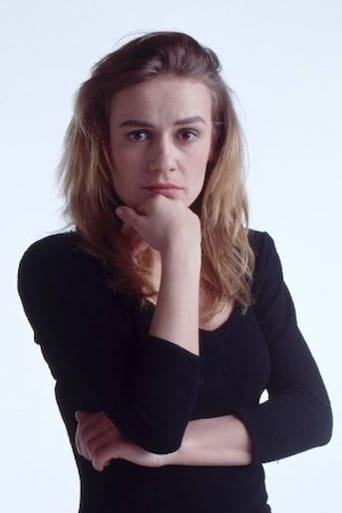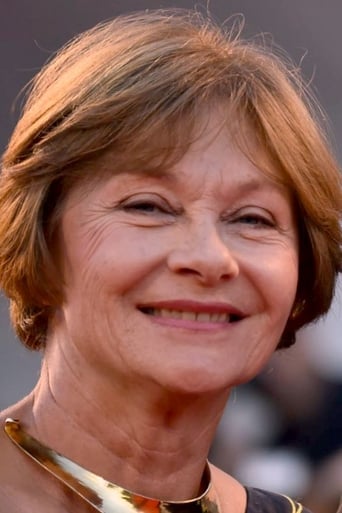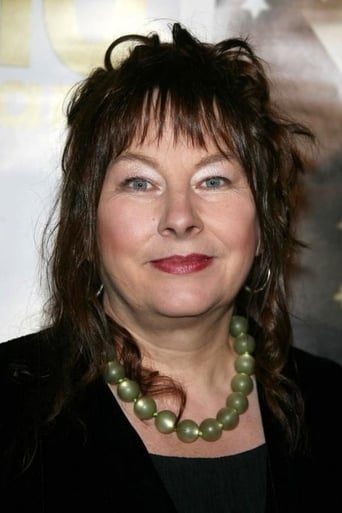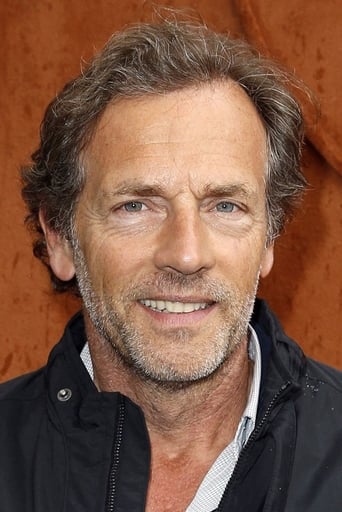gavin6942
In winter in the south of France, a young woman is found frozen in a ditch. She's unkempt, a vagabond. Through flashbacks and brief interviews, we trace her final weeks as she camps alone or falls in with various men and women, many of whom project their needs onto her or try to give her life direction.The film combines straightforward narrative scenes, in which we see Mona living her life, with pseudo-documentary sequences in which people who knew Mona turn to the camera and comment on what they remember about her. Significant events are sometimes left unshown, so that the viewer must piece the information together to gain a full picture.I enjoyed the concept of this film. Telling a story in flashback is not new, and in some cases may even be cliché. But I like that this film starts with a "vagabond", someone we expect to be a fairly unremarkable human being, and then fleshes them out to be a rather interesting (maybe even fascinating) subject...
reasonformirrors
This is what every character study should be; not speaking in terms of form but in terms of what it accomplishes. More than just being an opportunity for the audience to examine the protagonist, this film is also, and mainly, about the way the people...(read more) around her are affected.So the protagonist isn't likable. So what? I've never understood this need that most people have; the need to be always be best friends with the main character. Of course, some films depend on that. Some narratives depend entirely on getting the audience to root for the main character. If Andy Dufrense wasn't wrongly convicted but did indeed kill his wife and her lover, the audience would not acknowledge his being sent to prison as a conflict because he would be there rightfully so. If he and Red were not the poster-boys for integrity and morality amongst a sea of 'real criminals', the audience would not distinguish the main characters from any other of the thousands of inmates, no matter how much the focus was on those two. If the warden wasn't an evil prick and Andy the good guy, etc. Most important, when Andy crawls through feces, booming soundtrack, pouring rain, that moment which the filmmaker obviously intended to be triumphant, well...people couldn't have cared less if that were to happen, and the filmmaker's attempt to make a connection would not have worked. I severely digress, and about a film which I don't even care that much for. Point being is that "Vagabond" is not plot-driven, it's a character study and it does not rely on whether you would prefer to hug and kiss the protagonist or punch and kick the protagonist.While the majority of film audiences need a character to be good or bad, I just need a character to be interesting or uninteresting. If the film tells you who's good and bad, and bases its story on that, the audience is reduced to a crowd at a tennis match, mindlessly turning their heads left to right, hoping their favorite Williams sister wins the match. While entertaining for some (I personally get nothing out of watching sports, but I guess I understand how it can be "fun"), at what point do I start using my braincells? Should film and art only be there to entertain us just as much as watching a group of pituitary cases trying to stuff a ball through a hoop?While a character study, like this one, would probably be wrongfully described as a film where nothing happens, due to lack of straightforward plot and goal, much more is "happening" in this 105 min film than in an entire season of "24". The only problem: it doesn't happen in the form of actual events, it happens through the exploration of themes, raising of questions, and the offering of commentary.Mona is a vagabond. No, this is not a mix between Vagisil and Gold Bond, although I'm sure that would be an awesome product. Basically, a vagabond is a hobo. She drifts from village to village, eating what she can and sleeping where she can. The film begins with her death, and through a cleverly crafted series of flashbacks and "interviews" with the people who met her along the way, the audience slowly learns more and more about her as the film progresses. Varda opens the film with a brief narration, but is never heard from again, in any sense. Varda is completely objective (not urging us to root for Mona). The audience only knows who Mona is according the people who've met her. Rarely is Mona on-screen by herself; mainly towards the end, leading up to the point where she tragically dies alone in a ditch, is the only time we see her by herself. The filmmaker, every other character in the film, and the audience are all in the same boat. If you're one of these people who needs someone to connect with, there you go. Instead of manipulating the audience in order to have us connect with the main character, Varda puts the audience in the shoes of everyone else, especially the police who find her body at the beginning of the film and are trying to find out more about her. This enhances the story and creates interest in the character. Also, it gives the audience, if you really need that emotional connection, the opportunity to briefly connect emotionally with the people around her because the two of you interact and have these experiences with Mona simultaneously.In a movie in which much doesn't happen, it gives the audience a lot to wrap their minds around. Human nature, the constraints and benefits of society, conformity, reckless rebellion, are some of the many themes that the film presents and allows the audience to ponder. As not to rob you of such an intellectually stimulating experience, I won't go into to detail about the points the film the raises.Varda does this in such a effectively subtle way that even things as seemingly uneventfully as Mona petting a dog early on in the movie, then later on telling another dog to "fuck off and die"; and having a glass of Brandi and laughing with a senile woman simultaneously develop character and expand on the many themes presented in the film.Needless to say but I'll say it anyway, the film is visually flawless. A photography student before she became a filmmaker, Varda has an eye unlike anyone in cinema. While "Cleo From 5 to 7" seems to be the most talked about and well-known of her films, and undoubtedly a masterpiece, "Vagabond" is my favorite of her films.
kenjha
The last couple of weeks in the life of a dead vagabond woman is told in flashbacks. Like the vagabond, the film wanders aimlessly and rather pointlessly. Mona, the lazy, sullen, and drug-addicted title character, is not likable and Bonnaire does little to make her interesting. Although there is some pretentious dialog attempting to explain why Mona has chosen this miserable lifestyle, her motivations are never really clear. The episodic nature of the film, involving some random characters, becomes tiresome after a while, making it seem much longer than its running time. It is also hard to believe that an attractive young homeless woman would not draw more attention from men.






